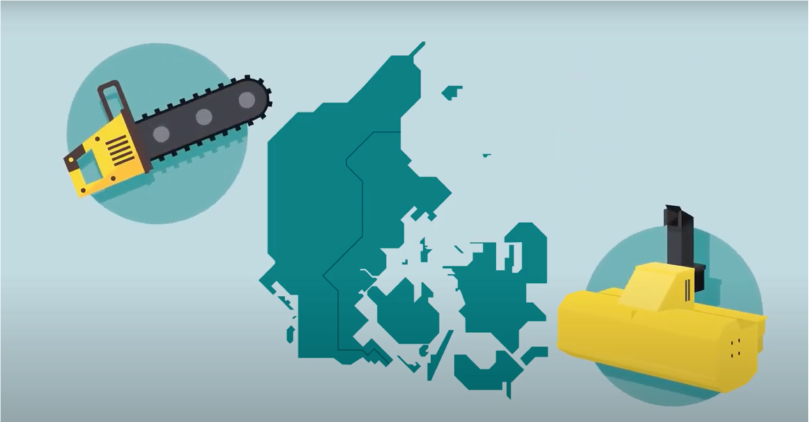Grow your business in the European Union
Benefit from the Canada-European Union Comprehensive Economic and Trade Agreement (CETA)

Are you looking to access millions of new consumers by expanding your business to markets in the European Union (EU)?
The Canadian Trade Commissioner Service (TCS) can help get you there! The TCS can help you navigate CETA, a free trade agreement (FTA) that presents businesses like yours with new advantages and excellent opportunities for growth in EU markets.
FTAs are treaties between two or more countries that lower or remove barriers to trade, such as tariffs. They make it easier to do business and may help you compete as an equal with local companies. They can also cover non-tariff barriers to trade, like quotas and border processing delays. Some of Canada’s recent FTAs, including CETA, can make it easier to invest across borders, protect your intellectual property, or move your highly skilled workers between Canada and FTA partner countries.
Let the TCS help you navigate
Whether you export goods or services, the TCS can help you capitalize on CETA and Canada's other FTAs.
- Learn about Canada’s FTAs and what they can do for you
- Discover the benefits of doing business in the EU with CETA
- Access CETA tools and resources to help your business succeed in the EU
- Connect with trade commissioners who can offer insights and support
- Read success stories about how CETA has helped businesses like yours
Canada's FTAs
Canada currently has 15 ratifiedFootnote 1 FTAs with 51 different countries, including CETA. Together, these agreements cover 1.5 billion consumers worldwide.
Whether you sell goods or services or you’re seeking to find business partners in your supply chain, Canada’s FTAs help grow your business by:
Increasing competitiveness
With lower or no tariffs, it could cost less to take your product or service to a new market than it would for a competitor bringing a similar product or service from another country without an FTA in place.
Providing access to new consumers
FTAs make it easier for you to sell to consumers in other countries, including foreign governments. FTAs can also include preferential rules that can simplify how you set up your foreign operations.
Making foreign markets more transparent and stable
FTAs take some of the guesswork out of exporting by offering Canadian businesses better predictability, protection and transparency in foreign markets. Some recent FTAs also promote progress on meeting global labour, environmental, and responsible business standards and practices.
Removing barriers to trade
FTAs can reduce border-crossing delays to member countries, which gets your product to market more quickly. Some FTAs include commitments that give businesses protection for their investment, an equal opportunity to bid on government contracts, or streamlined access to partner markets to conduct their business activities.
Doing business in EU with CETA
CETA is a bilateral agreement between Canada and the EU. The EU is one of the largest economies in the world and is the largest trader of manufactured goods and services.
CETA is a comprehensive, ambitious, and inclusive free trade agreement that covers virtually all sectors and aspects of Canada-EU trade in order to eliminate or reduce barriers.
CETA gives Canadian companies preferential access to:
- 440+ million consumers
- 98% of tariff linesFootnote 2 duty-free
Here’s what CETA offers:
Competitiveness: Under CETA, 98% of EU tariff lines2 are currently duty-free, giving Canadian businesses preferential access to one of the largest economies in the world. This advantage will increase further to 99% of tariff lines duty-free by 2024.
Access to new clients: CETA expands Canada’s current access to supply goods and services to all levels of EU governments, including EU member state governments. It also offers new opportunities with regional and local governments.
Market transparency and stability: CETA’s provisions apply to product standards, investment, professional certification, and other areas of activity. This translates to greater certainty, transparency, and protection for Canadian businesses and investors operating in the EU. CETA also includes provisions for labour rights and environmental protection.
Reduced barriers to trade: CETA makes it easier to move goods and businesspeople across borders.
- The agreement facilitates the movement of certain skilled businesspeople between Canada and the EU by ensuring that some of the common barriers encountered at the border when seeking work authorizations do not apply (i.e. quotas or economic needs tests).
- It includes a streamlined process for negotiating agreements on the recognition of professional qualifications.
- Wherever possible, customs procedures have been made simple, effective, and predictable to reduce processing times at the border and make the movement of goods cheaper, faster, and more efficient.
Your CETA toolkit for the EU
Resources and guides
- The CETA website offers comprehensive information on the agreement, including chapter summaries and milestones.
- Tenders Electronic Daily (TED) is an online database featuring public procurement opportunities in the EU.
- Exporting to the EU – A guide for Canadian business provides an overview of regulatory requirements in the EU.
- Exporting services to the European Union offers practical information to answer your exporting questions and help you identify business opportunities in the EU.
- European Union government procurement guide for Canadian businesses provides information to help your company bid successfully for contracts with public and regulated entities in the EU.
- The Canada Tariff Finder lets you quickly and easily find tariff information for products in your target markets.
Videos to help you prepare for the EU market

1. Preferential Tariff:
Learn how CETA helps Canadian companies export products duty-free to the EU!

2. Rules of Origin:
If your product is certified as “made in Canada”, you can benefit from duty-free exports to the EU under CETA. Watch to learn how!

3. Temporary Entry:
CETA makes it easier for Canadian companies and service providers to work temporarily in the EU. Find out how!

4. Government Procurement:
Discover how CETA gives Canadian companies a competitive edge when bidding on government contracts in the EU!
Ready to leverage CETA?
Connect with a trade commissioner in the EU
Our network of trade commissioners in the EU can help you prepare for international markets, assess your potential, identify international business contacts, and troubleshoot business challenges to help you achieve your goals.
Need to speak with a trade commissioner? Contact us today.
You can also reach us through the following social media channels:
Twitter: @TCS_SDC
Facebook: Trade Commissioner Service
LinkedIn: Trade Commissioner Service
Access TCS market insights
Although part of a common market, each EU country has its own unique characteristics. While a pan-European strategy is useful, market entry strategies should be tailored on a country-by-country basis.
- Access information by country to explore opportunities for your business.
Don’t miss out on CETA’s benefits
Did you know that from 2018 to 2019, Canadian exports under CETA were leaving an average of 41% of potential tariff savings on the table? That’s nearly CAD 319 million in total savings missed out on over the two years! That amount would have been enough to cover the construction cost of the CN Tower (roughly CAD 311 million, accounting for inflation). This lost opportunity could have contributed to Canadian companies exporting more products due to lower costs, or using those savings on other business expenses like marketing or hiring more staff.
Success stories
CETA helps creative-play company break out in the EU market
Creative Education of Canada, Joyce Keelan, Founder and CEO
When it first started selling its role-play products for young children in Europe 13 years ago, Creative Education of Canada found that the region was a good market for high-quality Canadian goods. However, the company also discovered that the 12% duty that importers were forced to pay there made it hard to compete against inferior products from countries where goods could be produced more cheaply.

Joyce Keelan standing and smiling next to a clothing rack full of multicolored princess dresses and gowns for young children.
The introduction of CETA in 2017 brought the family business the opportunity it needed to break out in the European market. With an end to tariffs for its products and a forward-thinking strategy, the family business has doubled its exports to the region. The agreement “really made our sales in Europe economically viable,” says Joyce Keelan, Founder and CEO. “It really helped put us in a good price bracket.”
Creative Education’s future plans to take advantage of CETA include moving further into new markets within the EU.
Rowing shell manufacturer rides wave of success in global markets
HUDSON Boat Works, Glen Burston, Operations Manager
Founded in 1981, HUDSON Boat Works manufactures rowing shells and develops racing hull shapes, carbon composite construction, and innovative components specific to the sport of rowing. The Ontario-based company employs approximately 90 individuals and its shells have won over 88 medals at the Olympics and World Rowing Championships.

Glen Burston wearing a half-mask respirator while working on a rowing shell.
With 85% of their boats headed for international waters, exporting their product keeps the company riding the wave of success. Some of Canada's FTAs, including CETA, have helped the company with its global success.
“The European trade deal, CETA, was incredible,” says Glen Burston, Operations Manager. “It levelled the playing field, made us much more competitive and took away barriers.”
The Trade Commissioner Service helps Canadian businesses grow by connecting them with its funding and support programs, international opportunities, and its network of trade commissioners in more than 160 cities worldwide. Learn more at tradecommissioner.gc.ca.
Twitter: @TCS_SDC
Facebook: Trade Commissioner Service
LinkedIn: Trade Commissioner Service